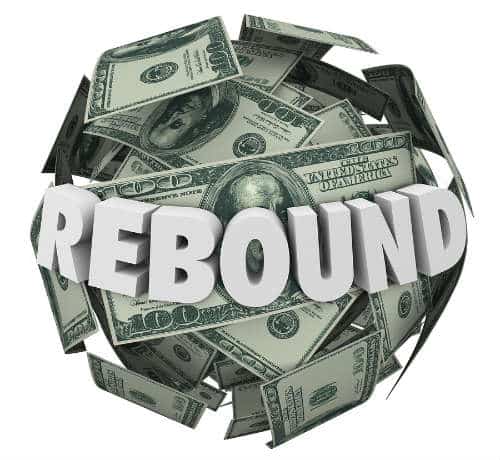Q: Two years ago I lost my job working at a New York bank making about $85,000 per year. Prior to my layoff, my financial situation looked something like this:
Assets
-
Savings of about $18,000
-
$60,000 in my 401k
-
A $400,000 house with $170,000 in equity
Liabilities
-
A HELOC for $25,000 at 5%
-
A $488 per month car note
-
$7,000 in credit card debt
-
$1,900 per month mortgage
Today I have finally found a job but I am earning less than half of what I made back in 2009 before the layoff. During my period of unemployment, I depleted my 401K.
Here is my current financial situation in a nutshell:
Assets
-
About $20,000 in savings
Liabilities
-
Sold my house for $70,000 less than I paid for it 6 years ago
-
Renting an $850 per month apartment
-
Have $24,000 in credit card debt
-
A $488 per month car note
I feel like I have nothing, even though compared to some in these destitute times I’m better off than others.
How do I rebuild my 401k, pay off my car and credit card debt, save again, and buy a new house in the South where I now live within a year or two?
A: Sorry to hear about your layoff. But glad to know that you did ultimately find new work. I know that’s tough to be unemployed for so long.
Here’s my advice, given the circumstances you’ve described:
Focus on paying off the credit card debt first. Don’t worry about the car so much now that you’re in the rebuilding process.
And honestly, I wouldn’t rush to get back into homeownership so quickly either.
I’m a big fan of people owning their own homes — but only when they’re financially prepared for all the challenges of homeowership. You’ve just been through the ringer.
After a long layoff and a house that took a while to sell and had declined in value, you need to regroup financially before you make any new, major moves.
So just take things one step at a time. Your credit card debt debt and car loan are about the same amount: each is $24,000. But I can guarantee you that your credit card debt is taking a toll on your credit score. So start chipping away at that as much as possible.
Here’s how:
– Pay two to three times the minimum payments. (Don’t fall for that minimum payment trap. That’ll keep you in debt and just make the credit card companies rich).
– Take every bit of “extra” money you get and sock it toward your credit card debt (think IRS tax refund check, holiday gift money, work bonus, etc.).
– Sell stuff you don’t want need or use (I know you’re living in an apartment now and have likely downsized a bit from your former house … but still. We all have stuff in our homes/apartments that can be unloaded. Sell stuff and raise cash. Put the money toward your debt payments).
– Start building a bigger cash cushion. You don’t have to save all your money in a 401(k). And again, I know it’s disheartening to have run through your retirement money. (After I was laid off in 2003, I did the same thing with my six-figure 401(k) fund).
But you’re still young! You can definitely rebound and recover. But I’d like to see you start with a “rainy day fund” of $500 to $1,500.
This would cover any quick emergencies that might pop up – like your car needing repairs or you having to pay some unexpected bill that arises.
The purpose of your rainy day fund is to help you avoid more credit card debt when life’s curve balls get thrown your way. And trust me: more things will happen.
– After you have your rainy day fund, work on creating a larger emergency cash cushion. This should be three times your monthly expenses.
So if your current bills are now $2,500 a month, you should have $7,500 in your emergency fund. The purpose of this fund is to tide you over in the event of a major life disruption – like if you lose your job again.
I have to imagine your cost of living is lower in the South than it was in NY. So that’s a blessing.
I know the pay is lower there too, but at least you don’t have to worry about a big mortgage and very large other bills (property taxes, insurance, etc.).
After you’ve built up those two specific funds, eliminated a big chunk of debt, and have gotten comfortable with your new budget, which will probably be one year or so, then you should re-evaluate your finances and the overall market and determine whether you want to buy a home where you now live.
I know this might not be the advice you want to hear. But I’m really telling you this as a way to help you lay the proper foundation for the next stage of your life.
You’ve heard that expression “Out of the frying pan and into the fire?” Well you don’t want to do that, right?
Best to take it step by step and ease your way back into homeownership — after you’ve saved a nice chunk of money and have the cash for a down payment as well as a cash reserve to deal with any issues with the house (ranging from moving costs, to closing costs, to repairs, furnishings, etc.).
Follow these steps and you’ll stat to recover from all the financial turmoil you’ve experienced the last two years. Good luck!






